१९१० - २०१० जन्मशताब्दीवर्ष (1910 – 2010 Centenary Year)
जन्म: २१ जानेवारी १९१० - मृत्यू: २ मे १९७५
A review of Shantaram Athavale’s life and works
Shantaram Athavale is a name associated with Marathi literature and film industry. Marathi is a regional language from the state of Maharashtra, known to the world due to it’s famous capital city of Bombay (Mumbai), in India. He has written 300 film songs, directed six and acted in 2 Marathi films, written 200 poems (with 2 published books) and 10 books on various subjects.
The “Prabhat Film Company” under the leadership of veteran director V. Shantaram epitomized in it’s entirety the Marathi Film Industry at the time. It produced path breaking and extremely beautiful films based on mythological, historical, devotional and social subjects in the third decade of the 20th century in Pune, a cultural city near Bombay.
Shantaram Athavale contributed through beautiful musical lyrics to films like ‘Sant Dnyaneshwar’, ‘Sant Tukaram’, ‘Gopalkrishna’, ‘Kunku’, ‘Shejari’, ‘Daha Vajta’, ‘Ramshastri’ which have always mesmerized the film lovers. One of the strong points of these films were his simple and easy but meaningful and emotional songs (Bhavgitas). Songs like ‘Aadhi beej ekale’, ‘Lakhalakha chanderi’, ‘Bharati Srishtishe saundarya khele’, ‘Mana suddha tuza’, ‘Don ghadicha daav’, entered not only the drawing rooms, but traveled into the courtyards, kitchens, and even the pooja rooms of houses and made home in the hearts of men and women, young and old.
“The lyricist of Prabhat Films”, is an important but incomplete introduction of the person, Shantaram Athavale. Even after leaving Prabhat he wrote more than 300 film songs. Apart from film songs he has written several poems. ‘Ekale beej’ and ‘Beejankur’ are two of his famous poetry collections. His specialty was that his poems looked for deep meaning in simple topics; they were humorous and touched the right nerve of the people. Many such poems of his were published in periodicals and magazines of that time.
Being a poet-lyricist is just one aspect of his multifaceted personality. He was also a Film Director, Producer, Screenplay writer, and Actor. He studied in depth - Spiritualism, Astrology, written literature by saints like Dnyaneshwar and the Indian civilization from a scientific point of view. All these aspects plus a kind and gentle disposition are the other bright and shining facets of this versatile personality who had achieved great heights in every chosen field of his work.
After leaving Prabhat, Shantaram Athavale produced a movie ‘Bhagyarekha’ based on the patriotic movement of the revolutionaries who went underground in 1942. He wrote the songs and also directed the movie. The peculiarity of this movie was that he had established a co-operative institution called, ‘Bharat Chitra Darshan’ for the production of this movie, and people like famous litterateur Tatyasaheb Kelkar came forward to help the film production by investing money in the institution (1947 – 1948).
The movie ‘Vahininchya Bangdya’, which celebrated a silver jubilee in 25 theatres, was directed by Shantaram Athavale. This movie, right from its inception (‘Muhurat’) to getting a censor certificate was completed in record period of 35 days. Cinegoers still remember and recollect the song, ‘tu nastis tar’ from this movie. Shantaram Athavale also acted in this movie (1952).
The movie ‘Shevgyachaya Shenga’ directed by Shantaram Athavale was honoured with the Critics’ award at the Cannes Film Festival in France. This was probably the first time that a Marathi movie had been honoured with an international award. The prayer-song, ‘Sukh devasi magave’ from this movie went on to become one of the most memorable songs (1954).
Filmistan was an institution, which produced Hindi films. He directed the movie ‘Padada’ for them based on the background of the joint honour of Bal Gandharva and Keshavrao Bhosle. The movie was a unique love story of a singer-actor and actress (1956).
Through his own institution, ‘Chitraganga’, Shantaram Athavale produced, directed the movie, ‘Sansar karaichay mala’, Ram Kadam composed the music for this movie, which dealt with the social problem of prostitute marriage. Baby Shakuntala was the heroine of this movie in 1953.
While working in the Films Division, he made excellent documentaries relating to the water problem in Rajasthan and folk songs of Assam (1960-1964).
His movie ‘Wavtal’, based on a novel by Shankar Patil, on village life won him 10 awards from the Government of Maharashtra, which consisted of a jury of stalwarts like P.L. Deshpande, Vishram Bedekar, and Gajanan Jahagirdar (1965).
His intimacy with literature existed even when he was involved in the Film industry, but while playing around with words there was something that attracted him ‘beyond the words’. A study of the literature on saints and this curiosity attracted him towards spirituality. He loved reciting the ‘Dnyaneshwari’ every day in the morning. Even while looking at the ups and downs of life in a detached way, he was aware of the power behind it. This led him to study Astrology. He has written volumes, which can be termed as reference books pertaining to those subjects.
He has written great volumes like, ‘Shantachiya ghara’, ‘Nadigranth, Ek Abhyas’, ‘Omkar-rahasya’, ‘Dnyandevichi Aradhana’, ‘Kundalini Jagadamba’, ‘Bakul Fule’. He wrote these books with his experienced pen after undertaking a deep study of each subject and managed to reach it to the readers. He also studied in detail about the Indian civilization and wrote the volume ‘Sukhachi lipi’.
He traveled all over the country and gave hundreds of speeches on greatness of Indian Culture due to it’s scientific base and Spirituality (Adhyatm) so that people would become aware of the treasure of the knowledge abounding in these volumes.
Several books have been published, documentaries have been made and information has been projected through other media about the ‘Prabhat Film Company’. But the book, which has proved to be the most unique and important is ‘Prabhatkaal’, written in a simple, straightforward way without hiding anything by Shantaram Athavale, who has seen the ups and downs of this Company with his own eyes and been a part of it himself.
Shantaram Athavale, who loved children, was fondly called ‘Tatya’ by them. Songs written by him especially for tiny tots and stories written for children have been published in the form of books.
Throwing the free end of his dhoti over his shoulder, singing songs while playing with the children of the neighbourhood, sending beautiful individual poems to friends on the occasion of Diwali, the great Light Festival of India, Shantaram Athavale, the gentle, emotional soul has become an important part of the lives of several people.
And this website is to bring to the world, this great man, in the language he spoke to the world in.
चित्रपट गीते (Film Songs)
साठ सत्तर वर्षांनंतरही रसिकांच्या ओठांवर घोळत असलेली अवीट गोडीची ही आणि अशी अनेक सुमधुर गीते वाचा, ऐका आणि पहा
(You can read, hear and see these and many similar songs)
कविता (Poems)
गुदगुल्या (नर्म विनोदी कविता) (Tickle)
"नाही धोका वेगे हाका"
"विवाहाचे नवे नाव, घटस्फोटास पात्रता"
"मी न कधीही करितो आमुचा लग्नदिवस साजरा चुका आपुल्या आयुष्यातील व्यर्थ कशाला स्मरा"
कवीने टिपलेले रोजच्या जीवनातले आनंदाचे काही क्षण:
"अहा तो क्षण आनंदाचा!" (Moments of Happiness)
दीपावली शुभेच्छा – काव्यभेट (Diwali Greetings)
बालगीते, बडबडगीते (Nursery Rhymes)
इतर भावकविता (Other Poems)
चित्रपट
नक्षत्रांचे गाणे
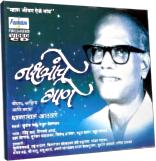 “याला जीवन ऐसे नाव”
“याला जीवन ऐसे नाव”
-
नक्षत्रांचे गाणे - शांताराम आठवले - भाग १
-
नक्षत्रांचे गाणे - शांताराम आठवले - भाग 2
-
चंद्रा थांबू नको गगनात - शांताराम आठवले
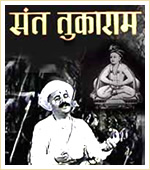 संत तुकाराम
संत तुकाराम
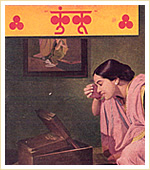 कुंकू
कुंकू
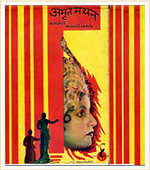 अमृतमंथन
अमृतमंथन
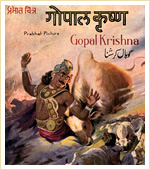 गोपालकृष्ण
गोपालकृष्ण
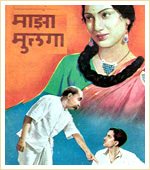 माझा मुलगा
माझा मुलगा
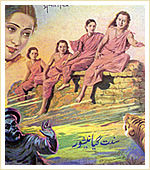 संत ज्ञानेश्वर
संत ज्ञानेश्वर
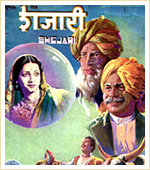 शेजारी
शेजारी
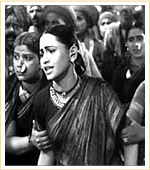 संत सखू
संत सखू
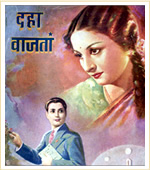 दहा वाजता
दहा वाजता
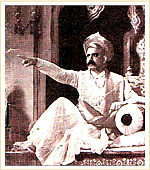 रामशास्त्री
रामशास्त्री
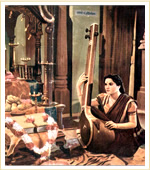 भाग्यरेखा
भाग्यरेखा
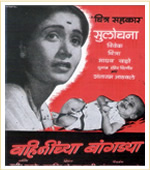 वहिनींच्या बांगडया
वहिनींच्या बांगडया
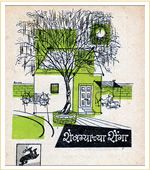 शेवग्याच्या शेंगा
शेवग्याच्या शेंगा
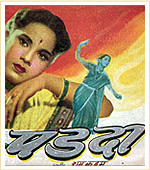 पडदा
पडदा